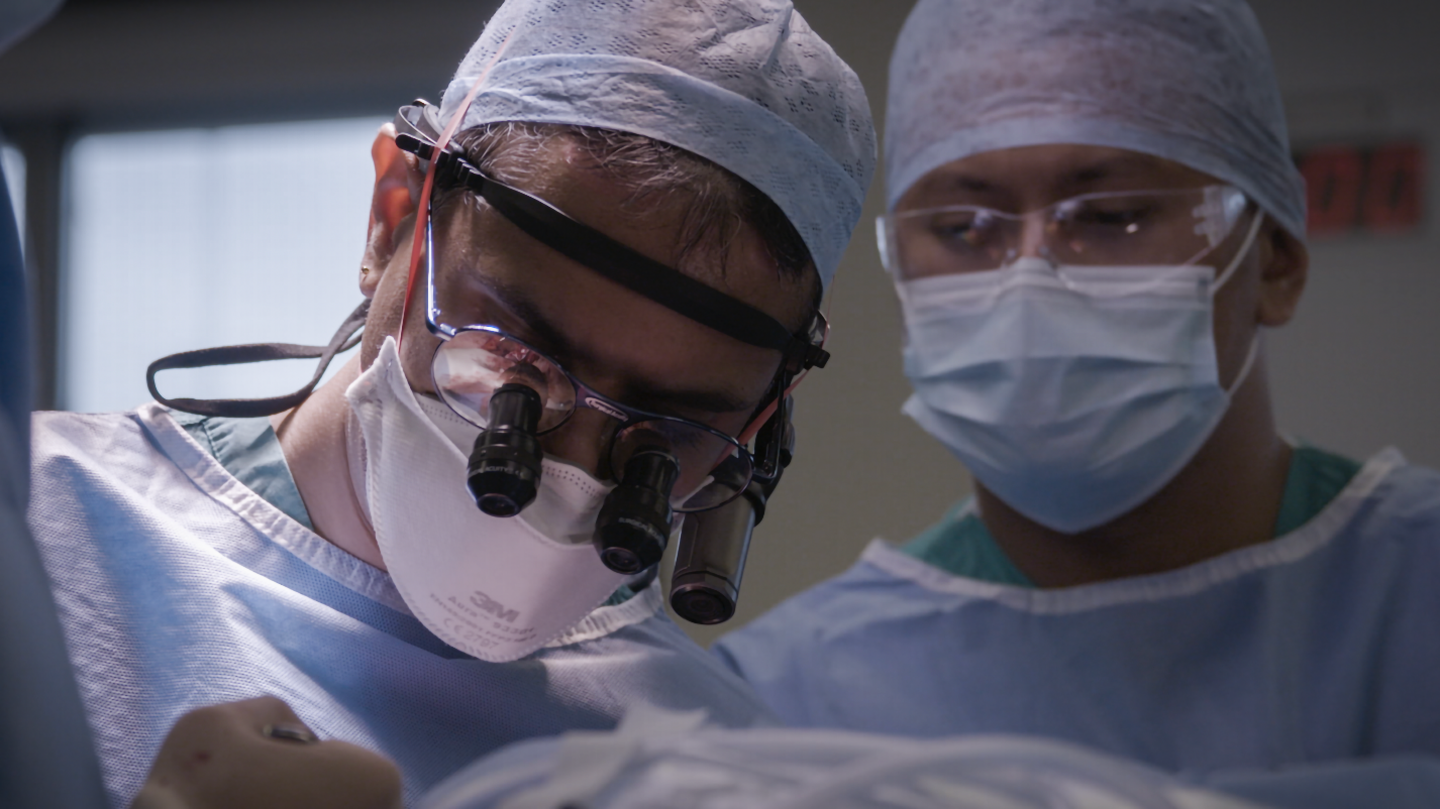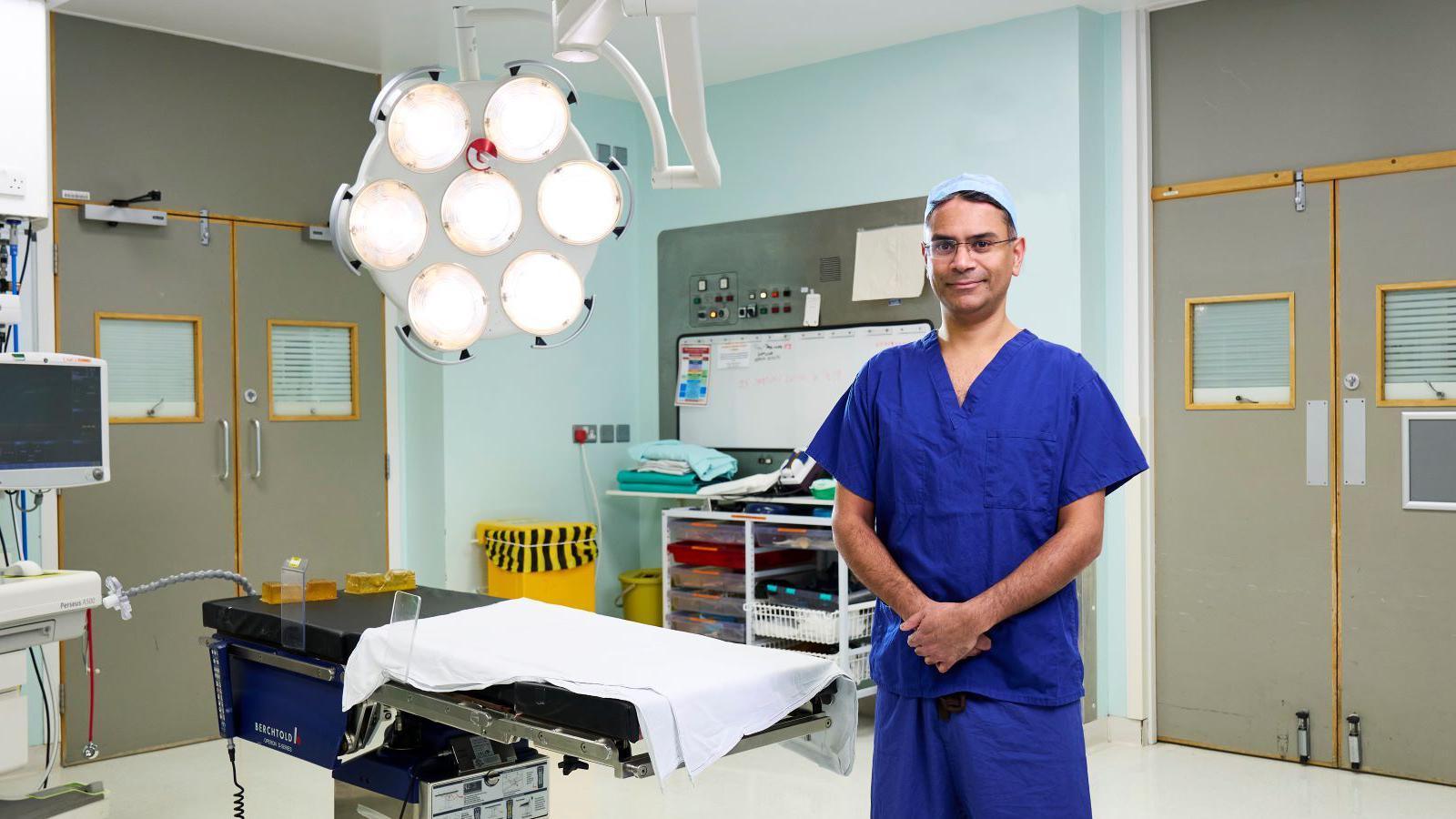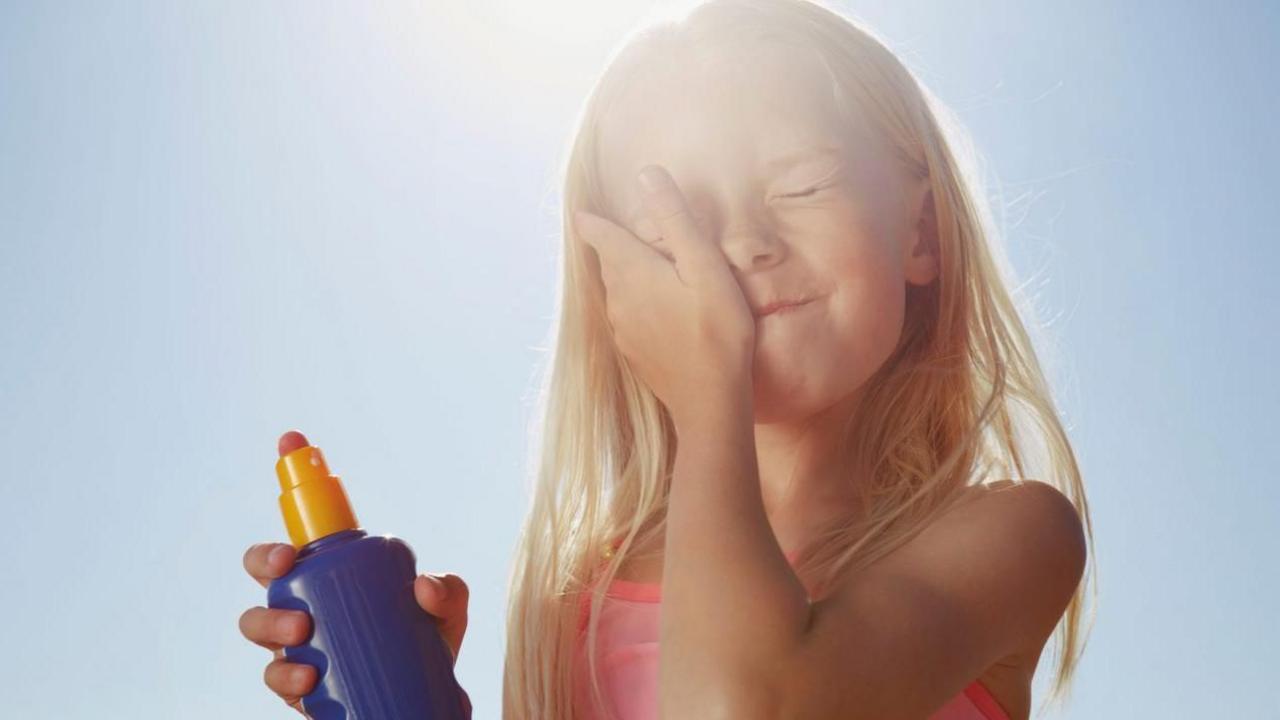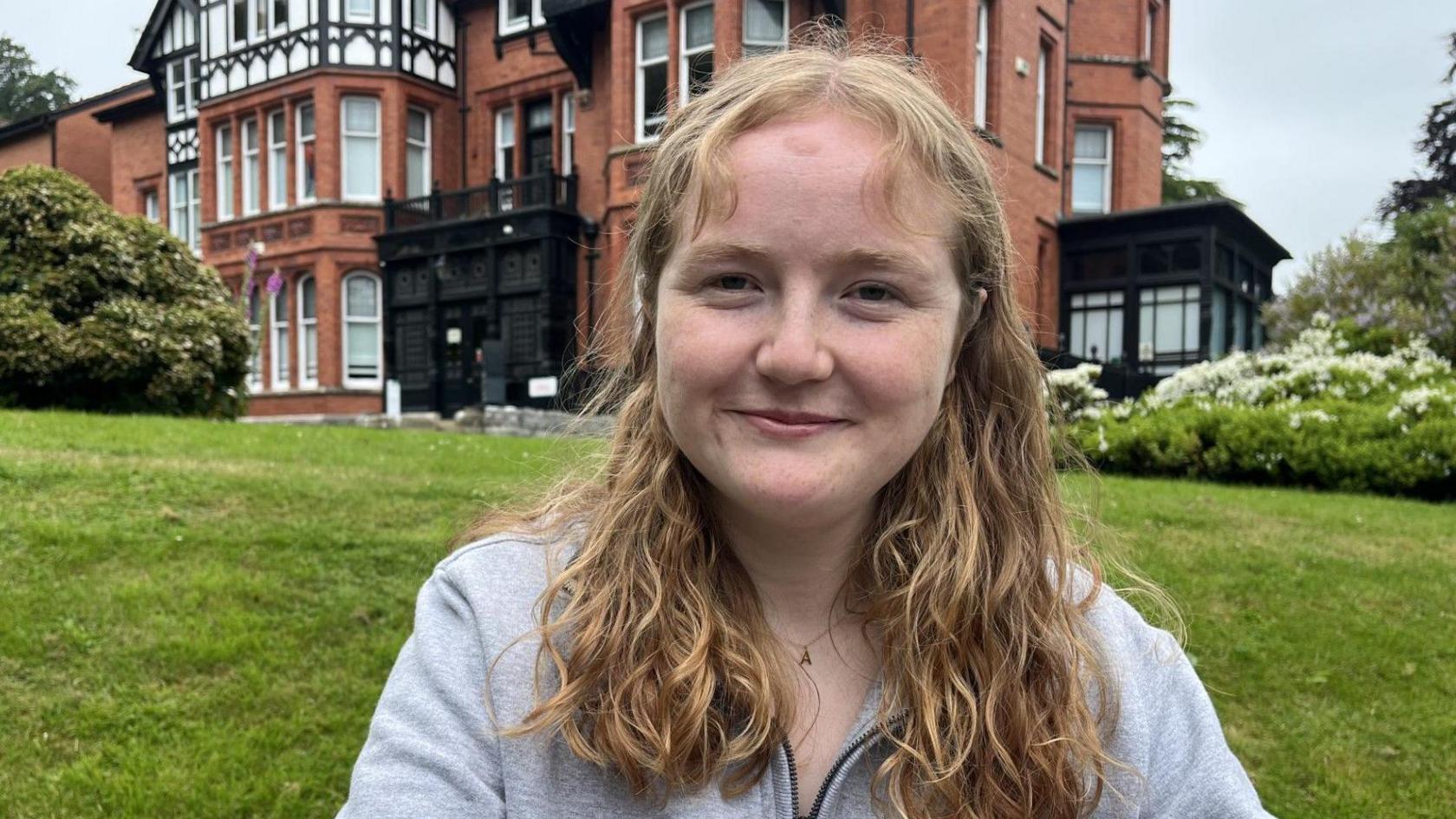Parents warned of skin cancer risk in children

Animesh Patel urged people to take "sensible precautions" even in cloudy weather as UV light could penetrate cloud
- Published
Many adult patients who have been treated for skin cancer spent a lot of time in the sun as children, said a surgeon.
Animesh Patel, a consultant plastic and reconstructive surgeon with the Cambridge University Hospitals NHS Foundation Trust, warned parents to be vigilant with their children's skin.
He said every year the plastic surgery department carried out "well over 1,000 operations" to remove sun-related skin cancers and he did not see the number dropping.
He explained the skin of children and babies was much more sensitive than adults, and damage caused by repeated exposure could lead to skin cancer in later life.

Mr Patel is the plastic surgery lead for head and neck cancer reconstruction at the trust
Mr Patel said although fair-skinned people burned easily and were at a greatest risk, people of all ethnicities needed to take care.
"I have removed skin cancers from patients of all ages, children to pensioners, so please take care whatever your age," Mr Patel said.
"Even for those families not travelling abroad, we may yet experience more of the hot spells that we did earlier in the early summer, where the sun has been very intense, so the same message applies.
"Take care if you're out on your bicycle or playing in the garden," he added.
Mr Patel said that getting a tan was not "necessarily safe or healthy", as a tan was the body's way of trying to protect the skin from damage.
He continued that excessive UV radiation from the sun could also damage the DNA in skin cells, resulting in cancerous changes developing in the future.
While children and adults do need some exposure to sunlight, it was important for people to be vigilant, he said.
"Do not rely on sun cream alone to protect yourself and the family.
"Wear suitable clothing, a sun hat with a broad brim to protect the face and ears and spend time in the shade when the sun is at its hottest in the middle of the day.
"Don't forget the sunglasses, regularly reapply the sun cream, especially if swimming, and remember to drink plenty of water to stay well-hydrated," he added.
Get in touch
Do you have a story suggestion for Cambridgeshire?
Follow Cambridgeshire news on BBC Sounds, Facebook, external, Instagram, external and X, external.
Related topics
More like this story
- Published29 June

- Published5 June 2024

- Published28 June 2024
